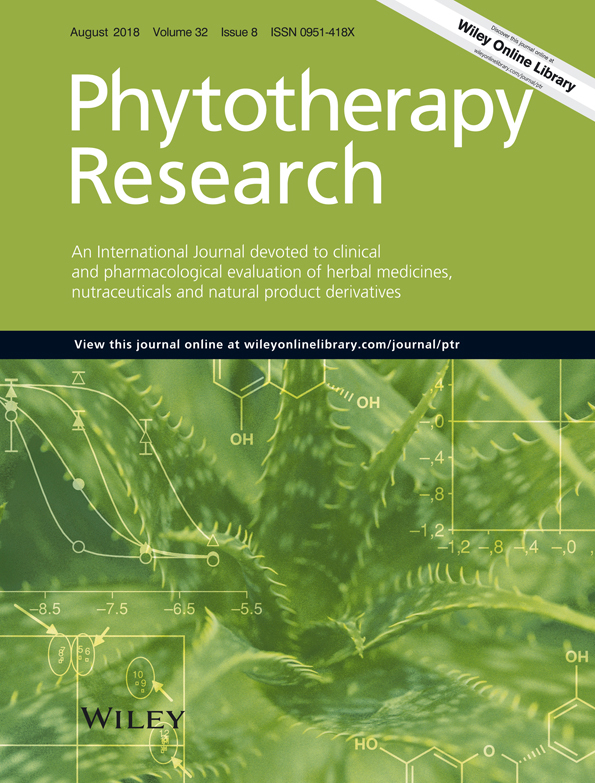Aurantio-obtusin, an anthraquinone from cassiae semen, ameliorates lung inflammatory responses
Abstract
The purpose of the present study is to find the natural compound(s) having a therapeutic potential to treat lung inflammatory disorders. In our screening procedure, the methanol extract of the seeds of Cassia obtusifolia (cassiae semen) inhibited inducible nitric oxide synthase-catalyzed nitric oxide production in alveolar macrophages (MH-S). From the extract, 8 major anthraquinone derivatives were successfully isolated. They are chrysophanol, physcion, 2-hydroxy-emodin 1-methyl ether, obtusifolin, obtusin, aurantio-obtusin, chryso-obtusin, and gluco-obtusifolin, among which aurantio-obtusin (IC50 = 71.7 μM) showed significant inhibitory action on nitric oxide production from lipopolysaccharide-treated MH-S cells, mainly by downregulation of inducible nitric oxide synthase expression. This down-regulatory action of aurantio-obtusin was mediated at least in part via interrupting c-Jun N-terminal kinase/IκB kinase/nuclear transcription factor-κB pathways. Aurantio-obtusin also inhibited IL-6 production in IL-1β-treated lung epithelial cells, A549. Importantly, this compound (10 and 100 mg/kg) by oral administration attenuated lung inflammatory responses in a mouse model of lipopolysaccharide-induced acute lung injury. Therefore, it is for the first time found that aurantio-obtusin may have a therapeutic potential for treating lung inflammatory diseases.
CONFLICT OF INTEREST
The authors have declared that there is no conflict of interest.




